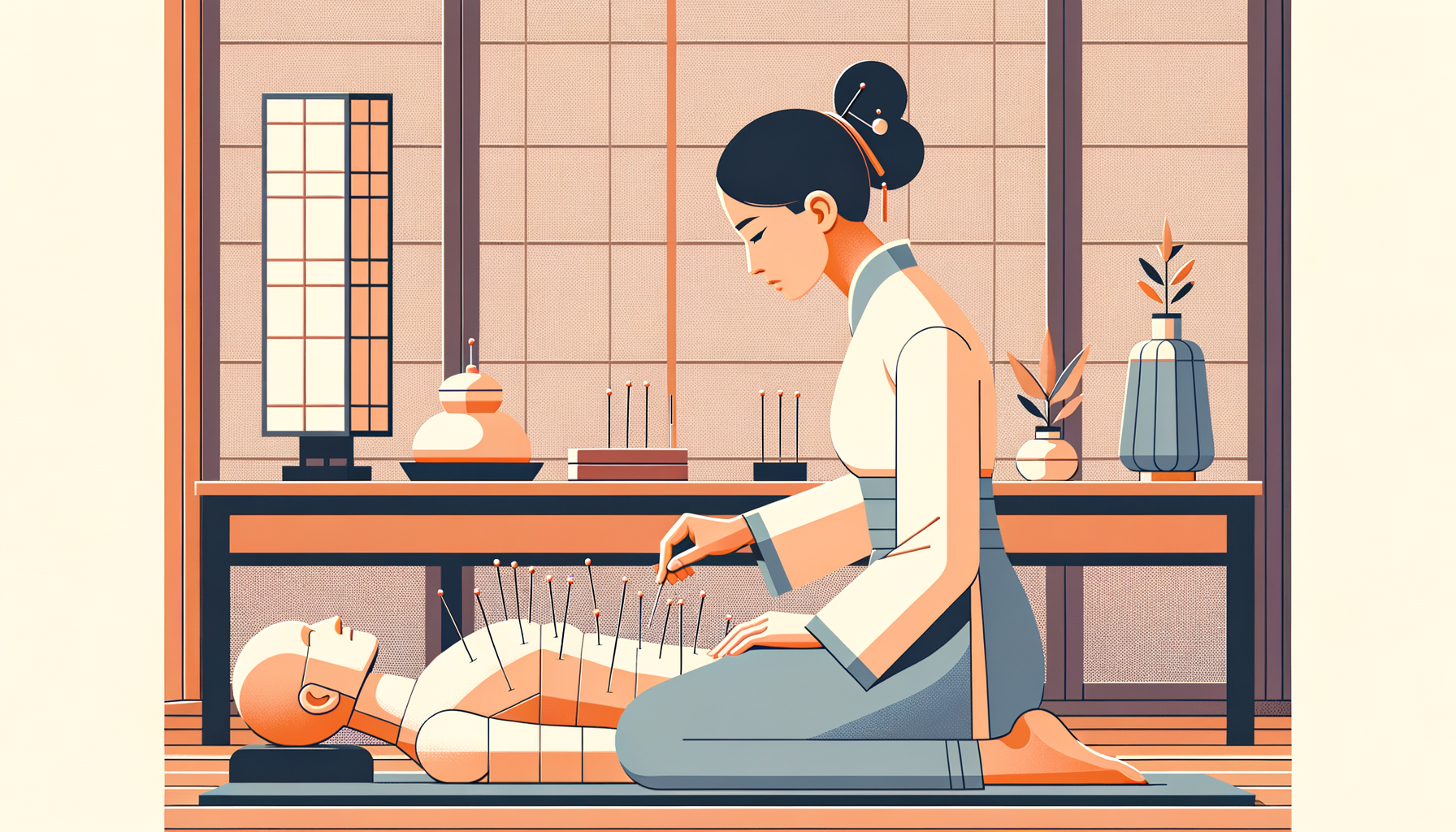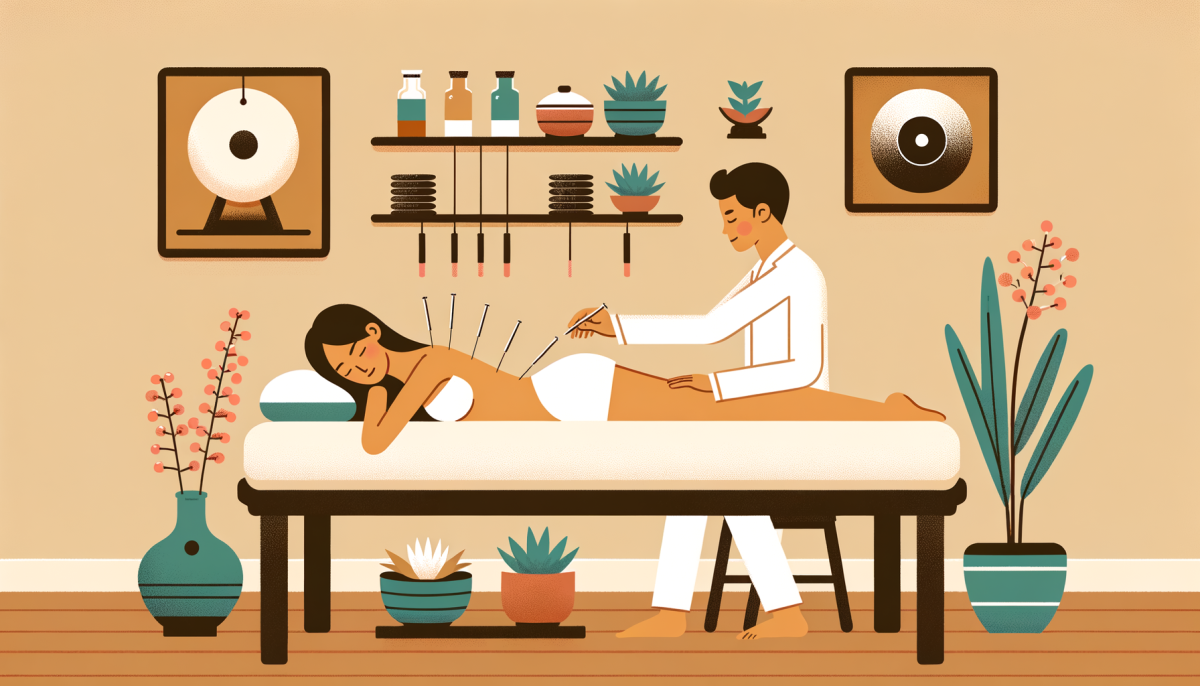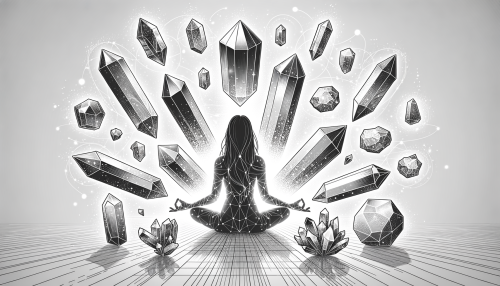Introduction
Embarking on the journey of acupuncture can be both intriguing and daunting. This ancient Chinese practice, steeped in centuries of tradition and wisdom, offers a unique approach to health and wellness. Yet, for the uninitiated, it can be shrouded in mystery and misconceptions. As you prepare for your inaugural session, it’s essential to arm yourself with knowledge, dispelling any fears and setting the stage for a potentially transformative experience. This article aims to illuminate the path, providing you with the necessary insights to navigate your first encounter with acupuncture with confidence and curiosity.
Understanding Acupuncture

Acupuncture, a therapeutic practice with roots deeply embedded in traditional Chinese medicine, operates on the principle of Qi (pronounced ‘chee’). This life force, or energy, is believed to flow through meridians or pathways in the human body. The disruption or blockage of this energy flow is thought to be the root cause of various ailments. Acupuncture, therefore, aims to restore the balance of Qi, thereby promoting overall health and wellness.
The procedure involves the insertion of thin, sterile needles into specific points on the body, known as acupuncture points. These points are believed to be junctures of meridians, where the Qi can be accessed and manipulated. The needles, when inserted, stimulate these points, helping to clear any blockages and encourage the normal flow of Qi. The number of needles used and the duration of their placement can vary greatly depending on the individual’s condition and the acupuncturist’s assessment.
The sensation experienced during acupuncture is often described as a tingling or dull ache, which is usually followed by a sense of relaxation or even euphoria. This is thought to be due to the release of endorphins, the body’s natural painkillers, triggered by the needle stimulation. It’s important to note that while acupuncture is generally considered safe, it should always be performed by a trained and licensed practitioner to avoid any potential risks or complications.
In the realm of modern medicine, acupuncture is often viewed as a complementary therapy. It’s used in conjunction with conventional treatments for a wide range of conditions, including chronic pain, stress, anxiety, and certain types of infertility. While the scientific understanding of how acupuncture works is still evolving, numerous studies have demonstrated its effectiveness in providing relief for various health issues. However, as with any treatment, individual responses to acupuncture can vary, and it may not be suitable for everyone.
Preparing for Your Session
As you anticipate your inaugural acupuncture session, there are several steps you can take to ensure you are adequately prepared. First and foremost, it’s crucial to maintain a well-hydrated state. Consuming an ample amount of water not only primes your body for the treatment but also aids in the smooth flow of energy, or Qi, as it’s known in traditional Chinese medicine. However, avoid overindulging in caffeine or alcohol, as these substances can disrupt the energy flow and potentially diminish the effectiveness of the treatment.
In addition to hydration, nourishment is another key aspect to consider. It’s advisable to consume a light meal a few hours before your session. This will provide your body with the necessary energy without leaving you feeling overly full or uncomfortable during the treatment. It’s also worth noting that acupuncture can occasionally cause mild dizziness, particularly in those who are prone to low blood sugar levels. Therefore, having a small snack beforehand can help to mitigate this risk.
Clothing is another factor to consider when preparing for your acupuncture session. Opt for loose, comfortable attire that will allow the acupuncturist easy access to various points on your body. Remember, acupuncture isn’t confined to just one area of the body; the acupuncturist may need to access points on your back, arms, legs, and even your abdomen. Therefore, clothing that can be easily adjusted or removed will make the process much smoother.
Lastly, it’s important to arrive at your session with an open mind. Acupuncture is a holistic treatment that aims to balance the body’s energy. It’s not uncommon for individuals to experience a range of sensations during their session, from warmth and tingling to a sense of relaxation or emotional release. Embrace these sensations and allow yourself to fully engage with the treatment. This will not only enhance your experience but also optimize the therapeutic benefits of the session.
Post-Session Expectations
Upon the culmination of your inaugural acupuncture session, you may find yourself enveloped in a sense of tranquility, akin to the serene calm that follows a gentle rainfall. This is a common aftermath, as the procedure is designed to restore balance to your body’s energy flow, or ‘qi’. However, it’s not unusual to experience a spectrum of reactions, some of which may be unexpected. You might feel a surge of energy, or conversely, a wave of fatigue might wash over you. These are normal responses and are indicative of your body’s healing process being set into motion.
In the hours following your session, it’s not uncommon to notice a slight exacerbation of your symptoms. This phenomenon, often referred to as a ‘healing crisis’, is a sign that your body is responding to the treatment and beginning to self-regulate. It’s crucial to remember that this is a temporary state and usually subsides within a day or two. During this period, it’s advisable to drink plenty of water to aid in the elimination of any toxins that may have been released during the session.
In the days succeeding your acupuncture treatment, you may observe a marked improvement in your overall well-being. This could manifest as enhanced sleep quality, increased energy levels, or even a noticeable reduction in stress levels. It’s important to note that while these improvements are certainly encouraging, acupuncture is a cumulative process. Consistent sessions are key to maintaining these benefits and promoting long-term health.
Lastly, it’s worth mentioning that everyone’s experience with acupuncture is unique. Some individuals may feel immediate relief post-session, while others may require several sessions before they begin to notice significant changes. It’s essential to listen to your body and communicate openly with your acupuncturist about your experiences and any concerns you may have. This will ensure that your treatment plan is tailored to your specific needs and will yield the most beneficial results.
Conclusion
In the final analysis, acupuncture, an ancient healing modality, is a unique journey into wellness that requires a blend of open-mindedness and preparedness. It’s crucial to approach your inaugural session with a clear understanding of the process, potential discomfort, and the importance of communication with your practitioner. Remember, the benefits of acupuncture are often cumulative, so patience is key. As you embark on this holistic health journey, keep in mind that each individual’s experience is as unique as their fingerprint. So, embrace the process, and allow the ancient wisdom of acupuncture to guide you towards improved health and well-being.





